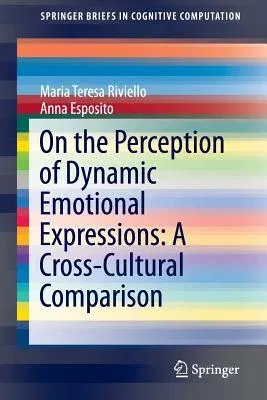Maria Teresa Riviello
(Author)On the Perception of Dynamic Emotional Expressions: A Cross-Cultural Comparison (2016)Paperback - 2016, 12 July 2016

Qty
1
Turbo
Ships in 2 - 3 days
In Stock
Free Delivery
Cash on Delivery
15 Days
Free Returns
Secure Checkout

Part of Series
Springerbriefs in Cognitive Computation
Print Length
45 pages
Language
English
Publisher
Springer
Date Published
12 Jul 2016
ISBN-10
9402408851
ISBN-13
9789402408850
Description
Product Details
Book Edition:
2016
Book Format:
Paperback
Country of Origin:
NL
Date Published:
12 July 2016
Dimensions:
23.39 x
15.6 x
0.3 cm
ISBN-10:
9402408851
ISBN-13:
9789402408850
Language:
English
Location:
Dordrecht
Pages:
45
Publisher:
Weight:
90.72 gm